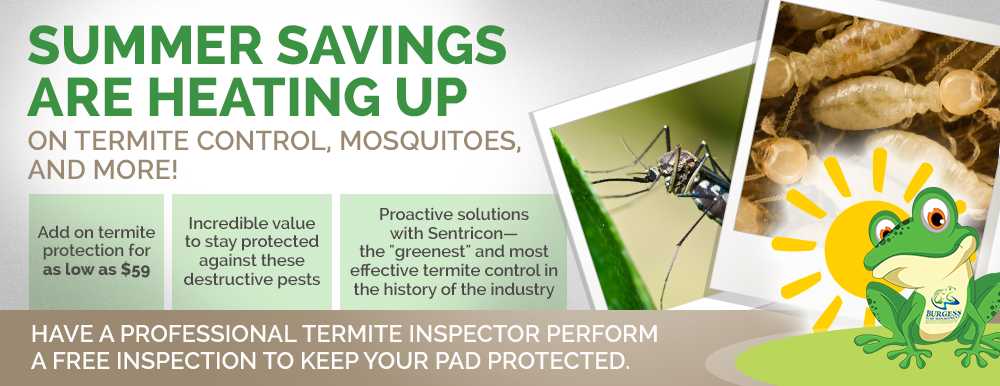
Heatwave in Massachusetts impacts insect activity
With the temperature soaring this week into the mid 90's, plus a heat index that will make it feel like at least 100, we're all feeling the effects of this summer heatwave in Massachusetts. But people aren't the only one's feeling the heat. Increasing temperatures have a large impact on insect activity in Massachusetts, and all over New England.
Many pests do more than survive in extremely hot weather - they thrive. Mosquitoes, ticks, ants, and spiders all do well in warmer weather for several reasons. But the first reason most soft bodied insects thrive in warm conditions has more to do with moisture than heat. Mosquitoes, for example, breed in shallow pools of water, including puddles, damp piles of leaves, ponds, and areas with storm runoff. A rainy spring and summer followed by heat creates ideal breeding conditions, which we see firsthand, at Burgess Pest Management.
Aside from the moisture conditions, beginning in the spring, warm weather allows our trees and shrubs to bud, which provides a source of food for many insects, including ants. By consuming the protein of budding plant matter, ants are able to rapidly expand their colonies, making them more active in and around our homes.
When we experience a heatwave, it may cause some insects to adjust their activity levels in order to avoid extreme heat exposure. Similar to humans, some insects would rather lay low and avoid the sun during the day, before becoming active again at night. Ants may also seek refuge from the heat by coming inside our homes, where it's cooler. This also allows their soft bodies to retain moisture, which is a critical component of their survival.


